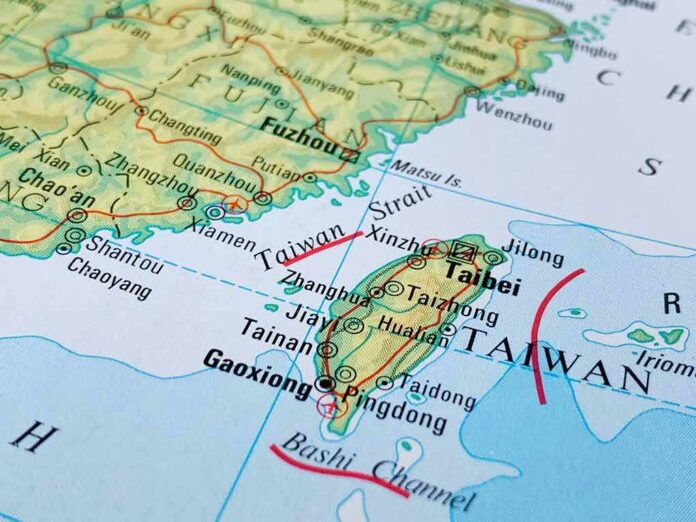Taiwan stands at a diplomatic crossroads as Pope Francis’s death forces the Holy See to navigate its delicate ties with both Taipei and Beijing, with Taiwan’s only European ally showing increasing interest in reconciliation with China.
Quick Takes
- The Holy See is Taiwan’s last remaining European diplomatic ally and most symbolically significant partner.
- Taiwan’s request to have President William Lai attend Pope Francis’s funeral was apparently rejected, signaling possible diplomatic strain.
- The Vatican’s 2018 agreement with China on bishop appointments has raised concerns in Taiwan about its future diplomatic standing.
- China demands countries sever ties with Taiwan before establishing relations with Beijing, putting pressure on the Vatican.
- Taiwan has fewer than 300,000 Catholics, while China has between 8-12 million, creating a numerical incentive for Vatican engagement with Beijing.
Taiwan’s Diplomatic Vulnerability Exposed
The death of Pope Francis has thrust Taiwan into a period of diplomatic uncertainty as the Catholic Church prepares to elect a new pontiff. As Taiwan’s list of formal allies continues to shrink—now down to just 15 countries worldwide—the Holy See remains its only European diplomatic partner and arguably its most symbolically significant. The island nation, claimed by China as its territory, depends heavily on these remaining diplomatic relationships for international legitimacy in the face of Beijing’s growing global influence and assertions of sovereignty over Taiwan.
Unlike in 2005 when then-Taiwan President Chen Shui-bian attended Pope John Paul II’s funeral, current President William Lai was notably absent from Pope Francis’s funeral proceedings. According to diplomatic observers, this represents a significant shift in protocol that may signal the Vatican’s increasing caution about antagonizing Beijing. Instead, Taiwan sent former Vice President Chen Chien-jen, himself a Catholic, to represent the nation—a decision widely interpreted as a compromise solution to maintain relations while avoiding heightening tensions with China.
The Vatican’s China Calculations
The Holy See’s diplomatic relationship with Taiwan dates back to 1951, when the Vatican severed ties with Beijing following the Communist Party’s rise to power. Recently, however, the Vatican has shown increasing interest in reestablishing formal relations with mainland China. The 2018 provisional agreement between Beijing and the Holy See on the appointment of bishops was widely viewed as a major step toward potential diplomatic normalization, despite criticism from religious freedom advocates and concerns from Taiwan.
According to a Vatican diplomat, “China had demanded the Holy See cut diplomatic ties with Taiwan but the Vatican instead requested an embassy be set up in Beijing before it would begin reviewing its ties with Taipei.
The stark numerical difference between Taiwan’s Catholic population (fewer than 300,000) and China’s (between 8-12 million, plus 390,000 in Hong Kong) presents a practical consideration for the Vatican’s global mission. From a purely pastoral perspective, access to China’s Catholic community represents a significant priority for Church leadership, creating an inherent tension with its diplomatic relationship with Taiwan. This reality underpins much of the anxiety felt in Taipei about the Vatican’s future diplomatic direction.
A Future of Cautious Balance
Despite these concerns, many diplomatic and religious experts anticipate that any successor to Pope Francis will proceed cautiously regarding the Taiwan-China question. The Vatican has traditionally taken a long view of history and diplomatic relationships, avoiding sudden policy shifts that could disrupt its global mission. Recent escalating tensions between Beijing and Washington over Taiwan have also made the diplomatic landscape more complex, potentially slowing any Vatican moves toward formally recognizing Beijing.
“This isn’t just about politics—it’s about the global Catholic mission. The Vatican has survived empires. It’s patient,” said Thomas Tu, a Vatican diplomacy expert at Taiwan’s National Chengchi University.
Taiwan officials are carefully monitoring the papal transition process, aware that any new pope might reconsider existing diplomatic arrangements. However, the Vatican’s historical approach to diplomacy suggests that dramatic changes are unlikely in the short term. Instead, the Holy See will likely continue its delicate balancing act—maintaining formal ties with Taiwan while gradually expanding religious engagement with mainland China. For Taiwan, this uncertain equilibrium represents both a diplomatic lifeline and a source of ongoing anxiety as it watches for signals of the Vatican’s future intentions.
Sources:
- https://www.yahoo.com/news/catholic-church-breaking-u-government-182549518.html
- https://www.scmp.com/news/china/diplomacy/article/3154287/caution-vatican-amid-us-china-tussle-over-taiwan
- https://www.foxnews.com/world/taiwan-edge-after-pope-franciss-death-closely-watching-vatican-china-relations











